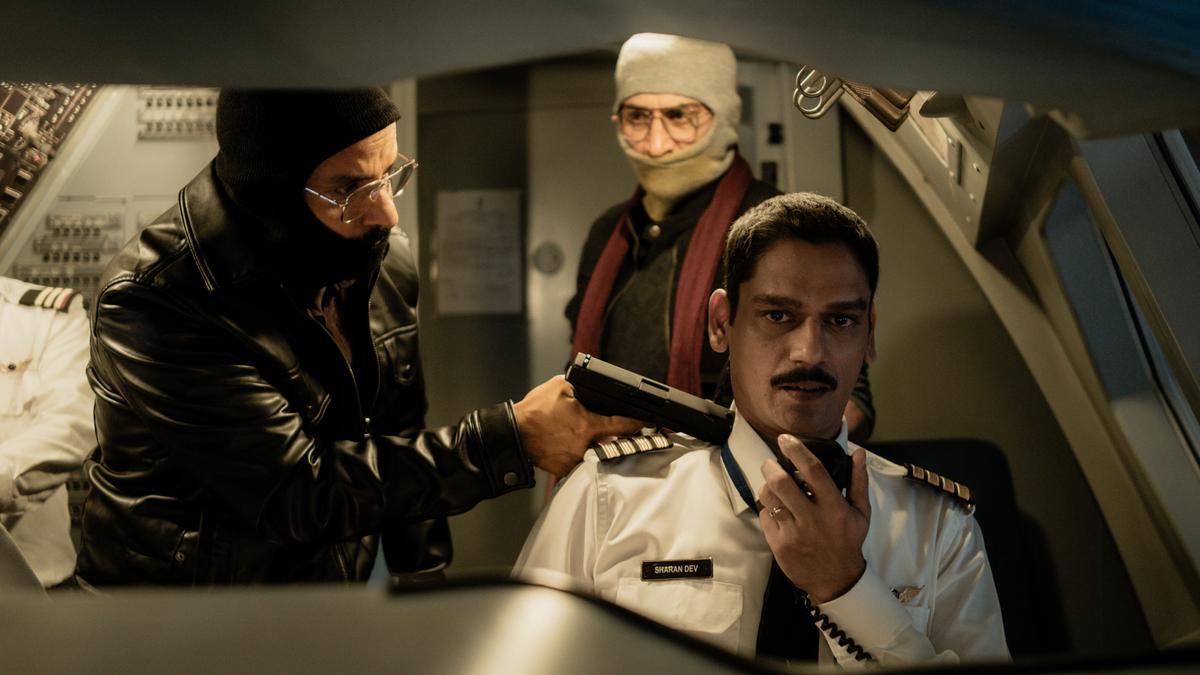
Netflix’s latest web series IC 814: The Kandahar Hijack has found itself amidst a storm of controversies, as an uproar on social media erupted early this week over the names of hijackers depicted in the widely acclaimed series. Several users expressed their indignation, accusing the series of distorting the religious identities of the hijackers. In response to the growing outrage, the Information & Broadcasting Ministry took decisive action by summoning Monika Shergill, the content chief of the streaming giant Netflix. Furthermore, a public interest litigation has been filed before the Delhi High Court by the president of an organization known as ‘Hindu Sena.’
The complaint raised by the Hindu Sena alleges that the series has intentionally misrepresented the religious identities of the hijackers by naming two of the five hijackers as Bhola and Shankar. The plea seeks the revocation of the certification of the series, claiming it portrays a distorted version of historical events.
Directed by Anubhav Sinha, IC 814: The Kandahar Hijack is a six-episode series that dramatizes the real-life hijacking of Indian Airlines flight IC-814 on December 24, 1999, shortly after it took off from Kathmandu en route to Delhi. The Airbus 300 was diverted to multiple locations, including Amritsar, Lahore, Dubai, and finally Kandahar in Afghanistan, which was then under the control of the Taliban. The hijacking ordeal spanned six grueling days of tense negotiations, culminating in the Atal Bihari Vajpayee-led NDA government’s controversial decision to release three notorious terrorists—Masood Azhar, Omar Saeed Sheikh, and Mushtaq Ahmad Zargar—in exchange for the lives of the IC-814 passengers and crew.
The series draws inspiration from “Flight To Fear,” a detailed first-hand account penned by the pilot of the ill-fated flight, Captain Devi Sharan, in collaboration with journalist Srinjoy Chowdhury. Despite a disclaimer asserting that the series is a work of fiction set against a backdrop of real-life events, the creative liberties taken by the filmmakers have not gone unnoticed.
The controversy centers around the use of the names Bhola and Shankar for two of the hijackers. Critics argue that the filmmakers failed to sufficiently clarify that these were merely codenames employed by the terrorists during the hijack, causing concern over potential misinformation. Historical records, including a press release issued by the Union Home Ministry on January 6, 2000, reveal that the real names of the hijackers were Ibrahim Athar, Shahid Akhtar Sayeed, Sunny Ahmed Qazi, Mistri Zahoor Ibrahim, and Shakir.
. The press release also confirms that aliases, including Chief, Doctor, Burger, Bhola, and Shankar, were indeed used by the hijackers.
The distinction between codenames and real identities seems clear to some critics, but their concerns extend beyond immediate misunderstandings. They worry about how future generations might perceive the events of the hijacking long after these facts fade from public memory. BJP leader Amit Malviya voiced this concern on X, stating, “The hijackers of IC-814 were dreaded terrorists, who acquired aliases to hide their Muslim identities. Filmmaker Anubhav Sinha legitimized their criminal intent by furthering their non-Muslim names. Result? Decades later, people will think Hindus hijacked IC-814.”
Despite the controversies, the series does provide some context to clarify the hijackers’ identities. For instance, the series unmasks the character known as Chief when negotiations reach a critical stalemate. Journalist Neelesh Misra, who also wrote a book on the subject, corroborated on X that Chief was revealed to be the brother of Masood Azhar. Within the series’ narrative framework, the names Bhola and Shankar are minor players who are referred to by their codenames only once across the six episodes.
As the debate continues to unfold, this controversy highlights the delicate balance filmmakers must strike between creative expression and historical accuracy. The series’ intent to dramatize a harrowing episode in Indian history may be well-founded, yet it underscores the significant impact that representation in media can have on collective memory and identity. Whether the resulting public and legal challenges will lead to any regulatory action remains to be seen, but one thing is certain: the controversy over IC 814: The Kandahar Hijack has ignited a crucial conversation about the responsibilities of creators in retelling historical events.












